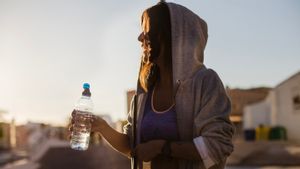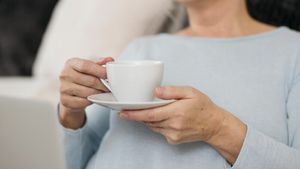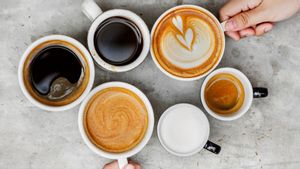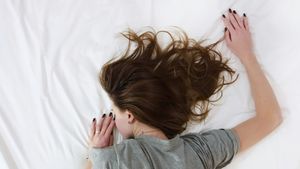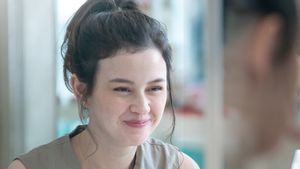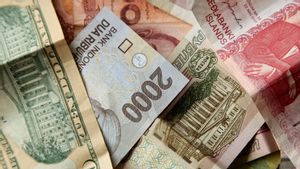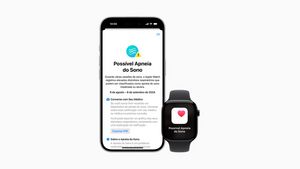JAKARTA - A person's sleep patterns are unique to their body type, health and age. However, everyone has a circadiant rhythm which means they are programmed to respond to the rising and sunset of the sun, said founder and president of the Valley Sleep Center in Arizona, Lauri Leadley.
Caffeine, he continued, as broadcast on LiveScience, quoted from Tuesday, May 7, can interfere with this natural sleep cycle which ultimately affects a person's sleep. According to a 2022 review in the Journal of Sleep Research, adenosine levels are usually higher at night. This means that people feel sleepy ahead of bedtime.
Consumption of caffeine will inhibit adenosine which can make people too alert to be able to fall asleep. Caffeine also interferes with sleep trigger hormones.
"When we consume caffeine during the day, at night it causes a decrease in melatonin's main metabolite, the sleep trigger hormone, which is one of the reasons why sleep is disturbed," said Dr Peter Polos, who received certification in sleeping and lung treatment.
The effects of caffeine impacting sleep can last a long time after the last coffee. Once in the body, caffeine lasts for several hours. The body takes about six hours to remove half of the caffeine effect.
A 2013 study in the Journal of Clinical Sleep Medicine divided people into three groups, namely individuals who drank six hours of caffeine, three hours or just before bed. As a result, even those who stop drinking caffeine six hours before bed experience a complete hour of sleep.
"Because it takes a long time for caffeine to leave your system, it is recommended not to drink caffeine before bed, after dinner, or you may spend hours going back and forth when you're supposed to fall asleep," Leadley said.
Caffeine actually not only affects sleep length, but also hampers sleep quality. Studies show caffeine reduces sleep waves which are stages of sound sleep and make a person feel fresh and awake in the morning.
SEE ALSO:
But how much one responds to caffeine is influenced by factors including age, metabolism, and genetics. One review of 2017 in the Journal of Sleep Medicine shows people become more sensitive to caffeine stimulant properties as they age. Tolerance also plays a role. Individuals who consume less caffeine are more sensitive to side effects, which can cause delays in sleep.
"Those who drink coffee often may not face the same challenge while sleeping," Polos said.
The English, Chinese, Japanese, Arabic, and French versions are automatically generated by the AI. So there may still be inaccuracies in translating, please always see Indonesian as our main language. (system supported by DigitalSiber.id)



